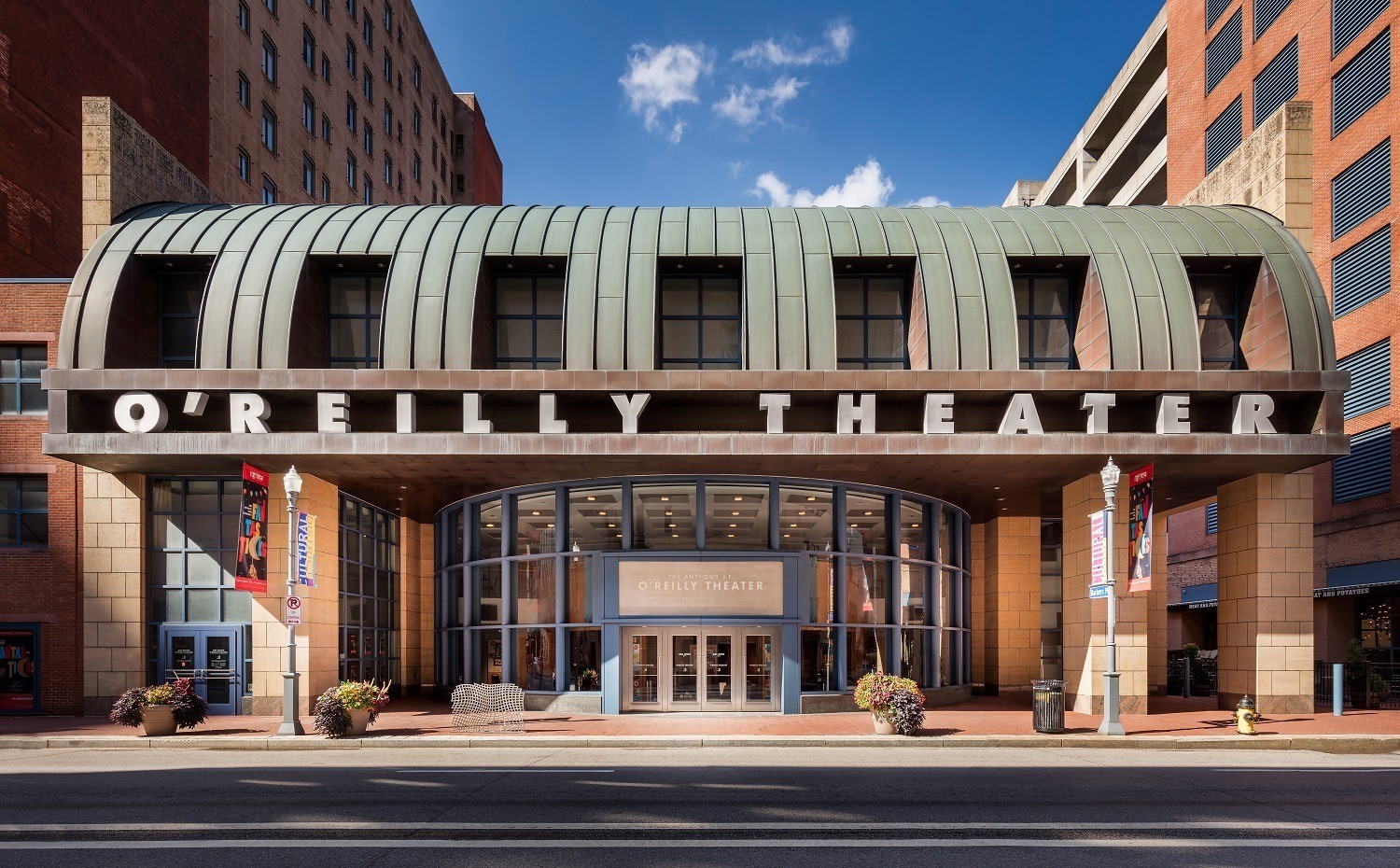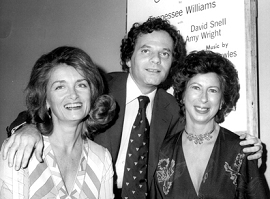
About The Public
MISSION STATEMENT
The mission of Pittsburgh Public Theater is to provide artistically diverse theatrical experiences of the highest quality.
Pittsburgh Public Theater also strives to serve, challenge, stimulate and entertain while operating in a fiscally responsible manner. The Public shares its resources with the community through education and engagement initiatives intended for a wide range of people with the goal of expanding and diversifying the audience while enriching the community.
PITTSBURGH PUBLIC THEATER LAND ACKNOWLEDGMENT
The ground on which we stand, at the confluence of the Allegheny, Monongahela, and Ohio Rivers, is home to the Seneca People. They called this area Jaödeogë’ (Jaonh day ō gent'), Between Two Rivers, the crossroads of the Seneca, Lenni Lenape, Shawnee, and numerous nations who lived before, with and after them.
These Peoples, along with other nations in the Haudenosaunee (Hoe-dee-no-SHOW-nee) Confederacy stewarded the land of this greater region; and like other First Nations across North America, their spiritual roots are buried deep within Mother Earth. We acknowledge this land and their continued spiritual connection to it as sacred.
We must also recognize the painful destruction of this connection and the injustices perpetrated on Native Communities through broken treaties and colonial occupation, resulting in enslavement, cultural genocide, forced assimilation, and dissolution of their right to independent self-governance.
Through awareness and action, we can write a new history that honors First Peoples’ spiritual connection to the land and combats Indigenous erasure, systemic racism and continued marginalization. We invite you to join us in action. A list of resources can be found by clicking HERE.
*This statement was crafted in collaboration with Dr. Joe Stahlman (Ska:ru:re), Ja:no’s Bowen (Onöndowa’ga:’), and Jamie Jacobs (Onöndowa’ga:’).
To view Pittsburgh Public Theater's Racial Justice commitments, visit PPT.ORG/RACIALJUSTICE.
OUR HISTORY

Margaret Rieck, Ben Shaktman, and Joan Apt (pictured left to right above) founded Pittsburgh Public Theater. It was chartered in 1974 and opened in September 1975 after a decade in which the city had become known nationally as an unenthusiastic theater town. Once a major stop on the pre-Broadway circuit, there was no longer a suitable venue for road shows after the city lost the beautiful "Old" Nixon Theatre. Even worse, a similar fate was anticipated for the "New" Nixon. The Pittsburgh Playhouse, once the flagship of American community theaters, had also closed, leaving only smaller community theaters, colleges and universities to keep the art form alive.
The broad-based efforts of many private and public individuals throughout the community contributed to the successful launch of Pittsburgh Public Theater. Commitments to ensure full funding of the first season were made before its opening. A strong volunteer organization was developed, community engagement programs were created, and 7,100 subscriptions sold (twice as many subscribers as the Theater Guild had in its heyday) before The Public opened in 1975.
The inaugural season was an enormous success, bringing great audience and critical acclaim for the three productions. The Glass Menagerie, directed by Ben Shaktman, was reviewed by Pittsburgh Press drama critic Ed Blank with the headline "Pittsburgh Public Theater triumphs with Glass Menagerie." One Flew Over the Cuckoo's Nest (one year before the film version), directed by John Going and starring Tom Atkins, was described by Pittsburgh Post-Gazette drama critic George Anderson as "thunderously engrossing theater." Twelfth Night, directed by Ben Shaktman, was praised by Ed Blank as "a Shakespearean production capable of turning heads and changing minds," with a special mention of Leonard Nimoy's Malvolio as "one of the funniest stage performances in memory." As stated by Martin Gottfried, author of A Theater Divided, a highly praised survey of American theater, "The Pittsburgh Public Theater has gotten off to an excellent start — as excellent a start as I've yet to see a regional theater get off to." With strong ticket sales and many sold-out performances, the season expanded to four productions the following year, which quickly grew to six in the following years.
The Public enjoyed 24 years on the North Side before moving to its current home — the O'Reilly Theater — in the heart of the Downtown Cultural District. The new performing space, which was built by The Pittsburgh Cultural Trust, opened with the world premiere of August Wilson's King Hedley II in December 1999.
The Public has a proud tradition of producing new work. In addition to the world premiere of August Wilson's King Hedley II, another of his masterworks, Jitney, received its professional premiere at Pittsburgh Public Theater. The pre-Broadway run of Andrew Lloyd Webber and Alan Ayckbourn's By Jeeves was staged at The Public before moving to New York's Helen Hayes Theatre.
Some of the plays which received their world premieres on The Public's stage include Horton Foote's The Habitation of Dragons; Jonathon Bolt and Thomas Tierney's Eleanor; Michael Cristofer's Amazing Grace; Mark Hampton and Barbara J. Zitwer's Paper Doll; Rob Zellers and Gene Collier's The Chief; Naomi Wallace's Things of Dry Hours; Mark Hampton and Michael Sharp's The Secret Letters of Jackie and Marilyn; and Lynn Ahrens and Stephen Flaherty's brand-new musical, The Glorious Ones.